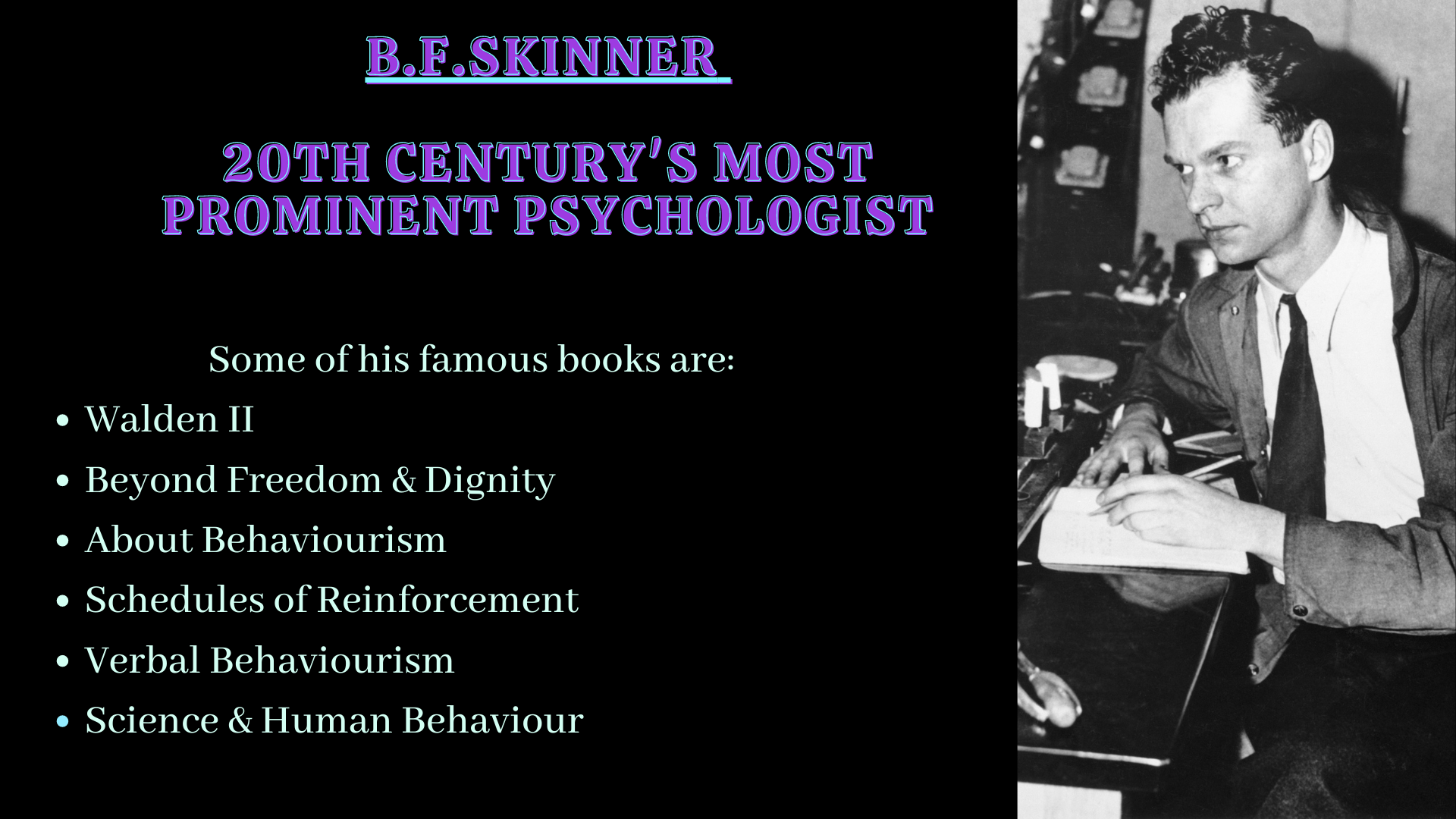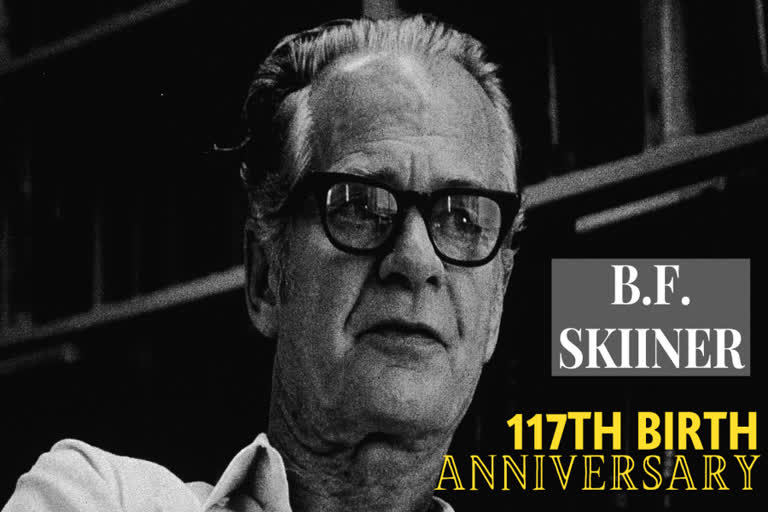Hyderabad: Burrhus Frederic Skinner (B.F. Skinner) an American psychologist, behaviorist, author, inventor, and social philosopher; was born on this date March 20 in the year 1904, in the small Pennsylvania town of Susquehanna.
Burrhus received his BA in English from Hamilton College in upstate New York.
He wanted to be a writer and did try, sending off poetry and short stories. When he graduated, he built a study in his parents’ attic to concentrate, but it just wasn’t working for him.
He resigned himself to writing newspaper articles on labor problems. After some traveling, he decided to go back to school, this time at Harvard. He got his masters in psychology in 1930 and his doctorate in 1931 and stayed there to do research until 1936.

In 1945, he became the chairman of the psychology department at Indiana University. In 1948, he was invited to come to Harvard, where he remained for the rest of his life. He was a very active man, doing research and guiding hundreds of doctoral candidates as well as writing many books. While not successful as a writer of fiction and poetry, he became one of our best psychology writers, including the book Walden II, which is a fictional account of a community run by his behaviorist principles.
In the laboratory, Skinner refined the concept of operant conditioning and the Law of Effect. Among his contributions were a systematic exploration of intermittent schedules of reinforcement, the shaping of novel behavior through successive approximations, the chaining of complex behavioral sequences via secondary (learned) reinforces, and “superstitious” (accidentally reinforced) behavior.
Skinner was influenced by John B. Watson’s philosophy of psychology called behaviorism, which rejected not just the introspective method and the elaborate psychoanalytic theories of Freud and Jung, but any psychological explanation based on mental states or internal representations such as beliefs, desires, memories, and plans.
Behaviorism
- Psychology is a science of behaviour
- It must use objective methods
- It can use animals or human participants
- It discards consciousness and instead the focus is on stimulus-response links.
- It should ultimately predict and control behaviour
- If humans are just another species, we should be able to study them the same way
- A learner responds to environmental stimuli without his/her mental state is a factor in the learner's behavior.
- Individuals learn to behave through conditioning
- No difference between people and animals- Both learn based on reinforcement.
- Behavior is shaped through reward or punishment for certain responses.
- Creativity and independent thinking are not important to teach.
According to Behaviourist theory, learning occurs when a learner is actively engaged and immediately rewarded.
Also Read: How Childhood Trauma Is Linked To Multiple Sclerosis



